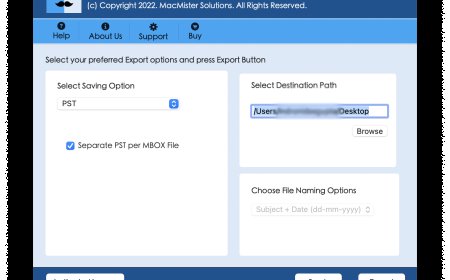Laravel vs. Node.js for Large-Scale Web Apps: A Deep Dive
Explore a detailed comparison between Laravel and Node.js for building large-scale web apps. Learn about performance, scalability, and which technology best suits your next web development project.

As businesses demand more scalable, secure, and performant web applications, choosing the right backend framework becomes a mission-critical decision. Among the leading technologies in this domain, Laravel and Node.js have emerged as top contenders for large-scale web apps. Both are powerful, flexible, and have their unique strengths, but choosing between them can be challengingespecially when scalability, performance, and long-term maintainability are on the line.
This article takes a deep dive into how Laravel and Node.js compare in the context of building large-scale web applications, focusing on performance, scalability, ecosystem, development experience, and more.
Understanding the Core Technologies
What is Laravel?
Laravel is a PHP-based web application framework known for its elegant syntax and developer-friendly features. Built on top of Symfony components, Laravel simplifies common tasks such as routing, authentication, caching, and session management. It's particularly popular for rapid application development and follows the MVC (Model-View-Controller) architectural pattern.
Laravel comes with built-in support for ORM (Eloquent), blade templating, and robust security features, making it a go-to choice for developers building feature-rich applications quickly and reliably.
What is Node.js?
Node.js is not a framework, but a runtime environment built on Chromes V8 JavaScript engine. It enables developers to use JavaScript for backend development, which historically has been limited to the frontend. Node.js is non-blocking, event-driven, and designed for scalable network applications.
In practice, developers use frameworks built on top of Node.js, such as Express.js or NestJS, to structure large applications. Node.js shines in scenarios where real-time, high-throughput, and asynchronous processing are key.
Performance and Scalability
Laravel Performance
Laravel is traditionally synchronous due to PHP's nature. This makes it simple to work with, but in high-concurrency environments, PHP can become a bottleneck unless paired with optimized server stacks like Nginx, PHP-FPM, and caching layers (Redis, Memcached).
Laravel has made significant strides in performance optimization with tools like Octane, which allows the use of Swoole or RoadRunner to keep applications in memory and drastically improve response times. Still, for applications that require intense real-time processing or handle thousands of concurrent users, Laravel might need more engineering effort to match Node.js's natural performance benefits.
Node.js Performance
Node.js is inherently fast due to its non-blocking I/O and asynchronous architecture. This makes it particularly effective for building APIs, chat applications, streaming platforms, and microservicesany system that demands real-time interaction and scalability.
Because of its single-threaded model, Node.js avoids the overhead of managing multiple threads but can run into issues with CPU-bound tasks unless you offload them to worker threads or separate microservices.
Development Speed and Learning Curve
Laravel Development Experience
Laravel is often praised for its developer experience. It comes with batteries includedrouting, middleware, ORM, templating, authentication, and queue management are all built-in and easy to set up. For teams already familiar with PHP, Laravel enables quick prototyping and clean, maintainable code.
Laravel also provides artisan CLI commands, automatic testing support, and clear documentation, making onboarding smooth for new developers. For large-scale apps with business logic-heavy workflows, Laravel offers structure and consistency.
Node.js Development Experience
Node.js offers more flexibility, which is both a strength and a challenge. Since Node.js is minimal by default, developers often need to handpick tools and frameworks to build a robust structure. Popular options include Express.js for routing and middleware, or NestJS for a more opinionated MVC-style setup.
This modular approach is ideal for custom-tailored applications but may lead to inconsistent architecture without proper standards. Onboarding can take longer for junior developers unless a team enforces best practices from the beginning.
Ecosystem and Community Support
Laravel Ecosystem
Laravel has a rich ecosystem of first-party tools such as:
-
Laravel Forge (server management)
-
Laravel Vapor (serverless deployment)
-
Laravel Nova (admin dashboards)
-
Laravel Horizon (queue monitoring)
The Laravel community is strong, and packages are well-documented and frequently updated. With PHPs maturity, there are thousands of community-driven libraries and integrations available.
Node.js Ecosystem
The Node.js ecosystem, powered by npm, is one of the largest in the development world. There's a module for nearly everything. Whether you're building RESTful APIs, integrating with databases, or implementing authentication, Node.js offers a rich set of packages.
However, the quality of packages can vary. Unlike Laravels tightly curated ecosystem, Node.js requires more diligence in vetting third-party tools.
Suitability for Large-Scale Applications
Laravel for Large-Scale Apps
Laravel can power large-scale applications when paired with a smart architecture. Caching, database optimization, horizontal scaling, and job queues are all supported natively or through integrations. Systems like multi-tenancy, role-based access control, and localization are easily handled with Laravel's mature feature set.
However, large Laravel applications benefit greatly from modular monolith or microservice patterns. Without clear separation of concerns, codebases can become bloated over time.
Node.js for Large-Scale Apps
Node.js is designed with scalability in mind. From event-driven APIs to microservices architecture, it handles concurrent connections efficiently. Node.js is ideal for applications like social platforms, real-time dashboards, and streaming services that demand quick, continuous interactions between client and server.
Its asynchronous design allows it to handle a high volume of requests with minimal resource usage, making it a favorite for tech giants like Netflix and LinkedIn.
Security Considerations
Both Laravel and Node.js offer robust security options, but their approaches differ.
-
Laravel comes with built-in protections against common vulnerabilities such as CSRF, XSS, and SQL injection. Its ORM (Eloquent) and form validation layers provide secure defaults.
-
Node.js, being more unopinionated, depends on the developers diligence and use of trusted middleware (e.g., Helmet, rate-limiting) to ensure security.
In both cases, regular updates, input sanitization, secure session handling, and package audits are essential for production-ready applications.
When to Choose Laravel
-
Your team is experienced with PHP.
-
You want a ready-to-use framework with opinionated structure.
-
You're building content-heavy or data-centric applications (CMS, CRMs).
-
You prefer rapid prototyping and clean MVC architecture.
-
You need built-in tools for queues, authentication, and admin dashboards.
When to Choose Node.js
-
Your app requires real-time functionality (e.g., chat, live notifications).
-
You want to use JavaScript across the full stack.
-
Youre working with microservices or API-first architecture.
-
Your team is experienced with JavaScript or TypeScript.
-
You expect a high volume of concurrent connections.
Conclusion
Both Laravel and Node.js are powerful tools in the web development landscape, each offering different strengths suited to different types of applications. Laravel excels in rapid development, structure, and a rich ecosystem, while Node.js offers unmatched scalability, speed, and flexibility for real-time and I/O-heavy apps.
The best choice depends on your teams expertise, your projects specific needs, and your long-term scalability plans. Whichever path you choose, both frameworks have proven themselves in powering some of the most sophisticated web development projects around the globe.
By understanding their trade-offs and potential, you can align your technology stack with your business goals and build large-scale web development solutions that are robust, scalable, and future-ready.


































